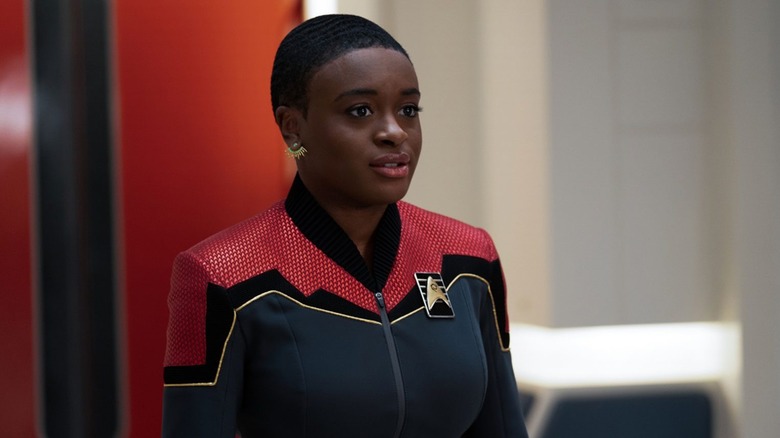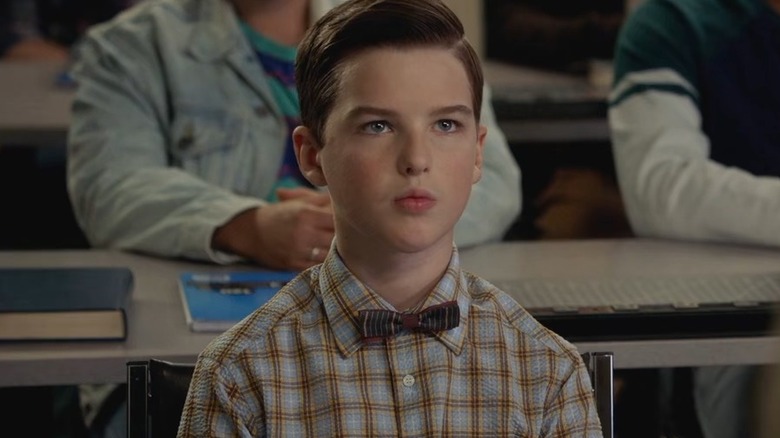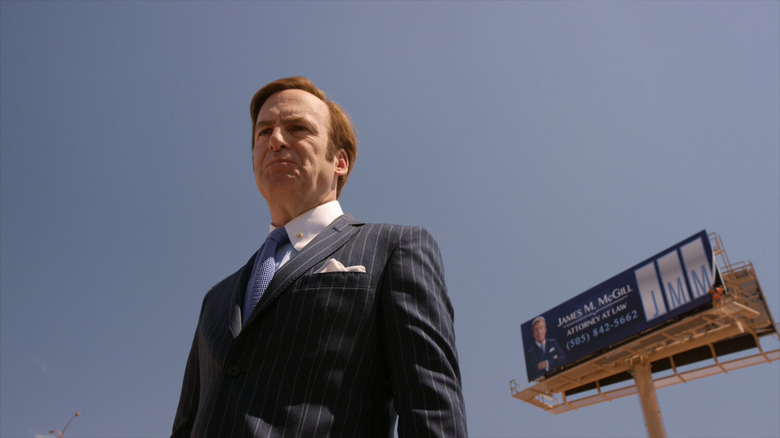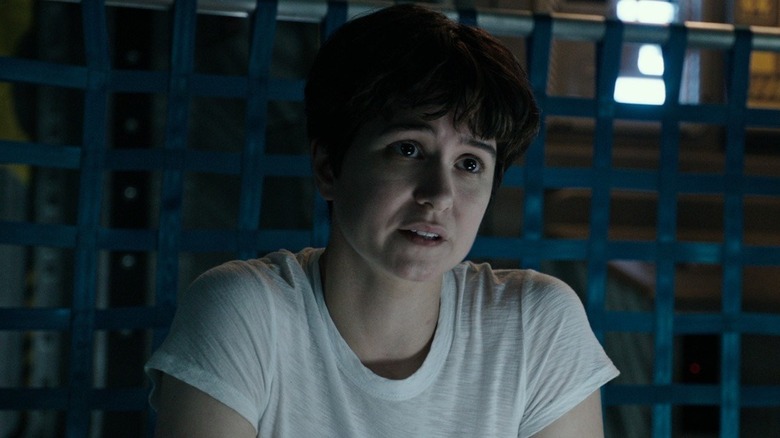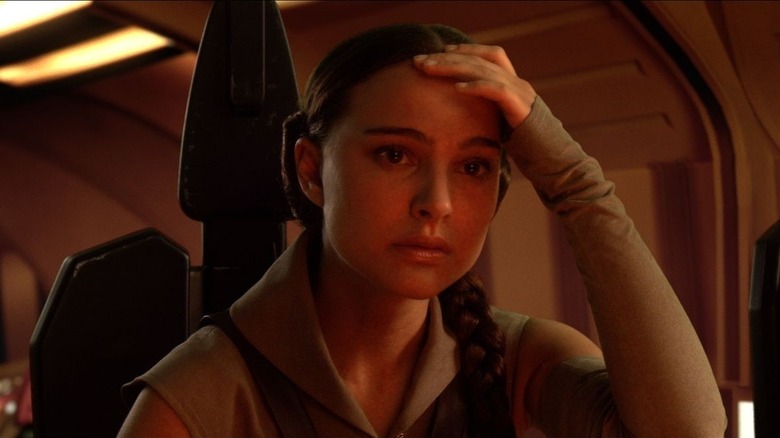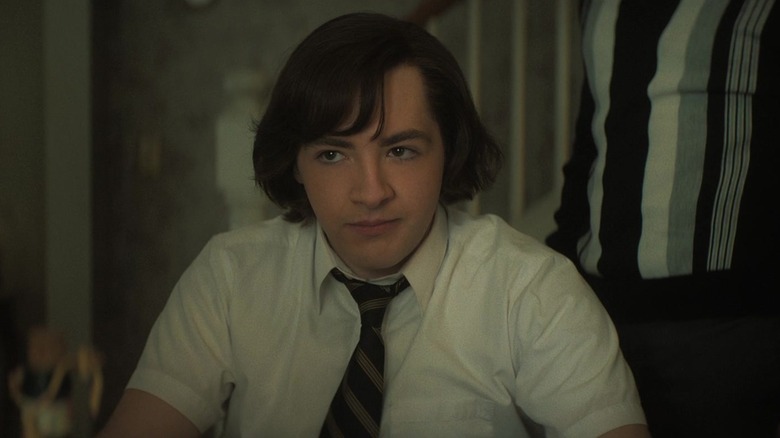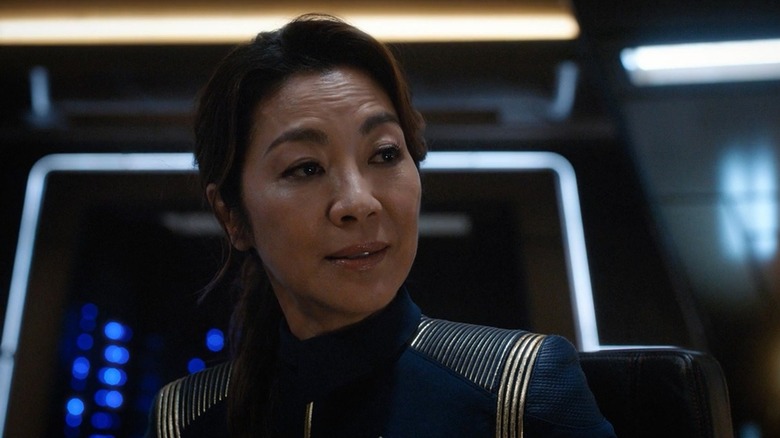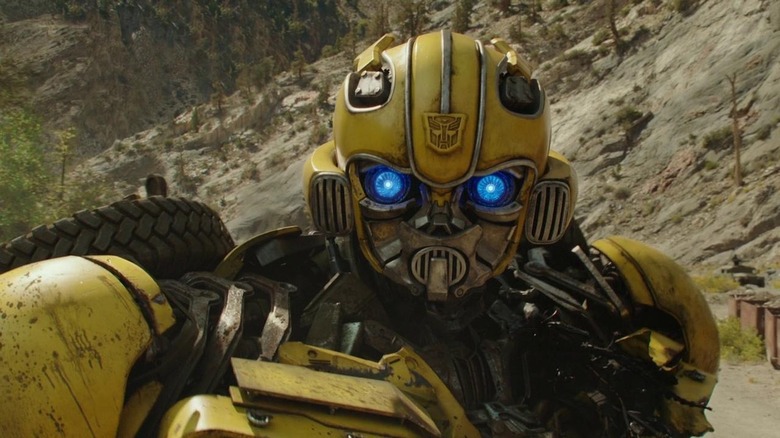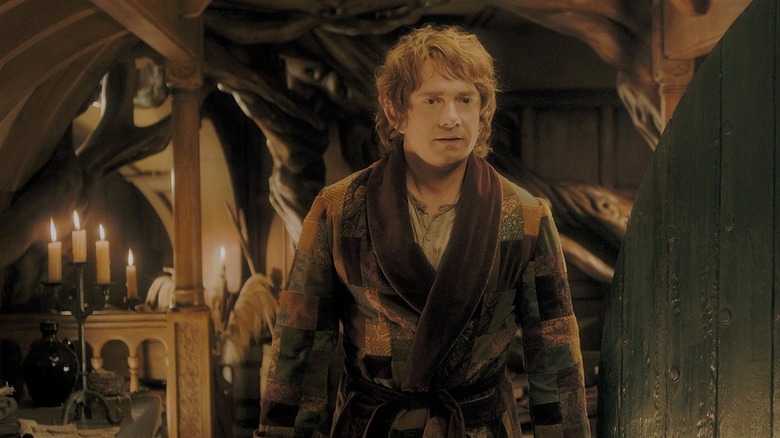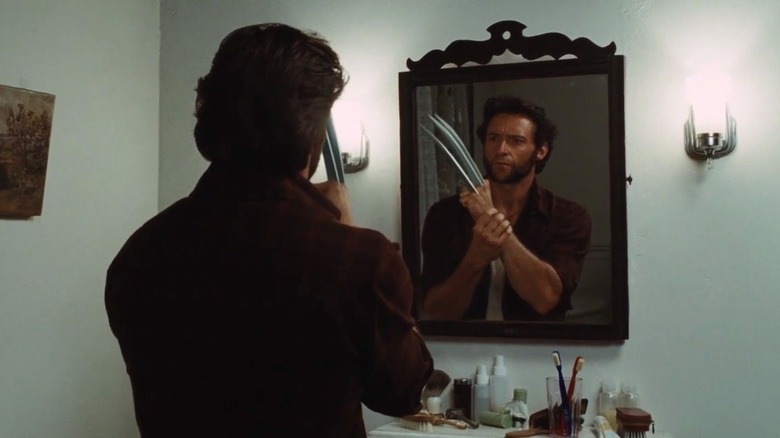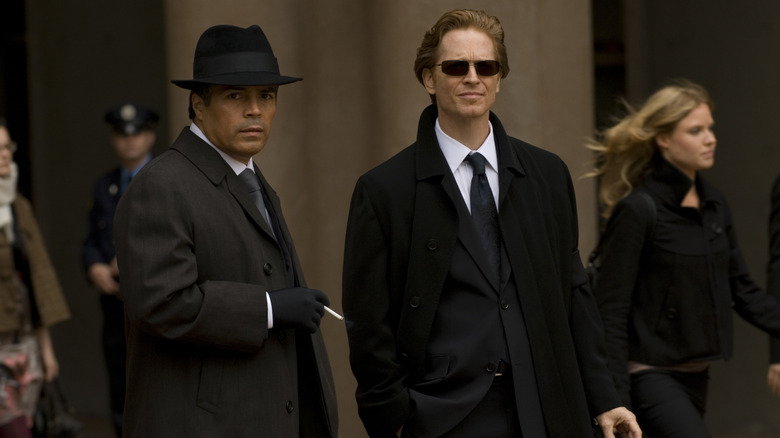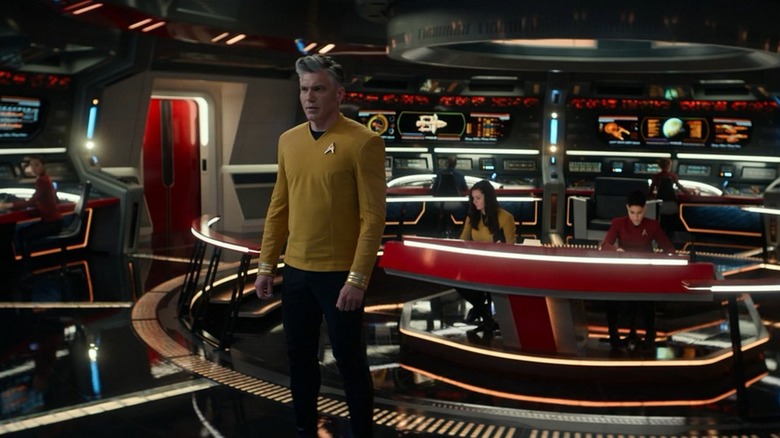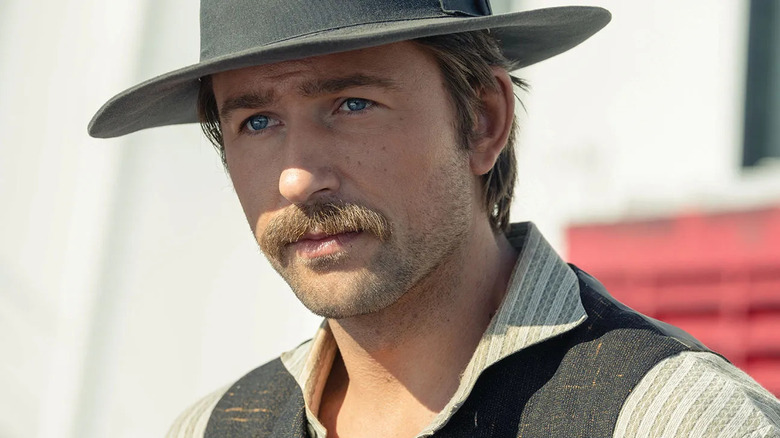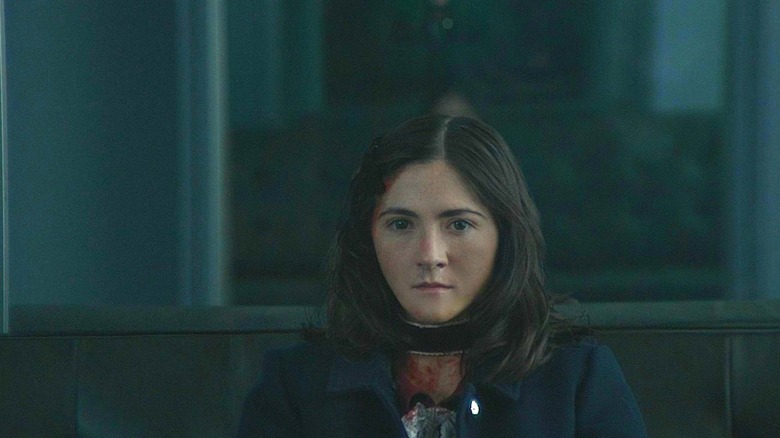Prequels That Created Massive Plot Holes For The Original
When a movie or TV show becomes a hit, it's understandable that producers want more. Sometimes that takes the form of sequels and spin-offs, but more and more studios are turning to prequels to expand the franchise. Setting a follow-up years before the original can bring fans a whole host of new stories with the same characters, allowing them to see their earlier adventures or even bring back characters who had been killed off. Sometimes they dramatize a story that had been hinted at before, providing a new look at something fans had known but never seen.
Unfortunately, prequels come with an inherent risk, because keeping a story set in the past also creates opportunities for plot holes. Writing a prequel can be problematic when being forced to remain in the confines of events already eluded to, and its ending has to set the scene for what we've already seen happen. Though writers try their best to remain true to the originals, it's not always as easy as it sounds, and just about every prequel ever produced has inadvertently caused inconsistencies and contradictions. From Middle Earth to the far-off future, these are some of the biggest plot holes caused by prequels.
Young Sheldon
"Young Sheldon" reveals the secret origin of Sheldon Cooper, the lead character played by Jim Parsons on "The Big Bang Theory," and in younger form by Iain Armitage. The problem for diehard fans was that it introduced a few gaping plot holes to Sheldon's previously established backstory.
Some fans have pointed to George Sr. (Lance Barber) as very different from what Sheldon describes when he is older, but that could be explained away by personal bias — perhaps the older Sheldon remembers his childhood dissimilarly to reality. Another instance of the older Sheldon giving a faulty account of his childhood is that he often said he had no friends when he was young. Again, on "Young Sheldon," we see otherwise, and characters such as Tam (Ryan Phuong), Billy (Wyatt McClure), and even Paige (Mckenna Grace) to an extent, could be considered Sheldon's friends.
One of the more specific but nonetheless significant oversights is that Sheldon claims on an episode of "The Big Bang Theory" that he is meeting Stephen Hawking for the first time, however, an episode of "Young Sheldon" reveals he'd actually attended one of his lectures as a kid. Perhaps Sheldon just has a really poor memory — that might be the only explanation for all of these plot holes.
Better Call Saul
"Better Call Saul" is undoubtedly one of the best TV prequels in recent memory. Set before and during the events of "Breaking Bad," "Better Call Saul" chronicles the life of sleazy lawyer Jimmy McGill, aka Saul Goodman (Bob Odenkirk). What makes the series unique for a prequel is how it recreates several iconic moments we've seen before, but this time from Saul's perspective. While it tries to remain incredibly faithful to previously established backstories, it still manages a couple of plot holes that don't hold up to scrutiny.
A case in point is the age of Kaylee (Abigail Zoe Lewis), Mike's (Jonathan Banks) granddaughter. In "Breaking Bad," Kaylee (then played by Kaija Bales) is 10 years old, but when she shows up on "Better Call Saul" — nearly a decade earlier — she is somehow around the same age. Worse still is the timeline of the cartel's leadership. In "Breaking Bad" it's said that Tuco (Raymond Cruz) becomes kingpin after his predecessor and uncle Hector's (Mark Margolis) health begins to decline. Flash forward (or backward as the case may be) to "Better Call Saul" and it's Tuco's cousin Lalo (Tony Dalton) who steps into the kingpin position after Hector suffers a stroke and can no longer do the job.
Alien: Covenant
It should have been one of the most celebrated prequels ever, but Ridley Scott's "Prometheus" proved divisive, with critics and audiences feeling it didn't measure up to the 1979 classic "Alien." Scott tried course-correcting for the sequel, "Alien: Covenant," giving fans more of what he thought they really wanted, but in the end, all he served up was a disappointing movie that created continuity problems for the franchise.
While "Prometheus" tried answering long-standing questions, it was "Covenant" that finally revealed the origins of the deadly Xenomorph. In doing so it tries to connect more closely to both the original "Alien," and "Prometheus" by explaining that the Xenomorphs were created by the android David (Michael Fassbender). The problem there is that "Alien" had established that the crashed ship on LV-426 had been there for hundreds if not thousands of years and that Xenomorphs had likely existed for that length of time. However, the amount of time between "Prometheus" and "Alien" is around 30 years, so something doesn't add up.
Some have suggested that Scott was attempting to retcon the events of "Alien," something that could have been cleared up definitively in a proposed "Covenant" sequel. Unfortunately, the film underperformed and is unlikely to get a follow-up, though a long-gestating "Alien" TV series spin-off — or the upcoming movie from Fede Alvarez — could answer some of these questions.
The Star Wars Prequel Trilogy
Set decades before the original three movies, the "Star Wars" prequel trilogy provided the kind of expansive backstory for iconic characters — like Obi-Wan Kenobi and Darth Vader — that fans once could only dream of. Unfortunately, some of the newly discovered lore created some serious contradictions with what fans had known for decades.
Some of the most infamous head-scratchers include Obi-Wan (Ewan McGregor) working closely with the diminutive droid R2-D2 (Kenny Baker) throughout the prequels when as an older man (played by Alec Guinness) he'd claimed to not recognize him at all. Furthermore, in "Star Wars: Episode VI – Return of the Jedi," Princess Leia (Carrie Fisher) says she has memories of her mother as a child, but in "Star Wars: Episode III – Revenge of the Sith," Leia's mother Padme (Natalie Portman) dies giving birth to her, rendering this impossible.
A different kind of plot hole was created when the reason for Obi-Wan's exile was revealed in the final prequel. On the run from the Empire, and tasked with keeping young Luke a secret from Darth Vader, it suddenly makes no sense at all why he and Luke would retain their real surnames.
The Many Saints of Newark
One of the most acclaimed dramas of all time, "The Sopranos," perhaps surprisingly, never received a sequel or spin-off. However, in 2021 it did get a prequel, starring the son of its star James Gandolfini as a younger version of mob boss Tony Soprano. Set in the 1970s, it follows Tony's (Michael Gandolfini) days as a street-hustling teen and how he became involved in organized crime, but it creates a few problems for the story.
Whether one thinks of them as plot holes or retcons, several characters and events in "The Many Saints of Newark" are very different than what we know from "The Sopranos." Some characters are the wrong ages, while other events alter the timeline in ways that don't make sense. One example is that we see Johnny Boy (Jon Bernthal) get arrested in "The Many Saints of Newark — consistent with a previous "Sopranos" flashback — however, in the prequel series he spends four years behind bars. That creates a continuity issue because in "The Sopranos," Johnny was out and about during that time, even shown getting his pinky finger lopped off in 1969.
More notable, however, is the age of Tony Soprano. Firmly established as being born in 1959 on "The Sopranos," his appearance as an older teen in 1967 — when he should have been 8 years old — is a befuddling portrayal.
Star Trek: Discovery
Incongruities in a prequel are usually the result of an oversight, or at worst, a reluctant but necessary creative choice made in only the most extreme circumstances. In the case of "Star Trek: Discovery," producers made it clear that they wouldn't be shy about making hefty changes to canon to allow them to tell less restrictive stories.
When the series premiered in 2017, the story of Michael Burnham (Sonequa Martin-Green) and the USS Discovery instantly created some major plot holes. First and foremost was the presence of an experimental starship with advanced technology never mentioned even a hundred years later in the "Star Trek" timeline. So egregious was this plot hole, in fact, that at the end of Season 2 the writers address it by throwing the ship a thousand years into the future and having Starfleet classify the technology for fear of galactic destruction. It was a far-fetched explanation that strained credulity, but at least it helped address the problem.
Similarly, the highly secret Starfleet intelligence agency called Section 31, established as being unknown to almost anyone — both before and after the time of "Discovery" — seemed to be common knowledge, operating out in the open for all to see. Once again, producers realized that perhaps they'd created too big a plot hole to ignore, and following the show's second season, they tried to explain it away in a throwaway scene.
Bumblebee
The sixth film in the "Transformers" series opted for a prequel in the form of Travis Knight's "Bumblebee." Telling the origin story of the titular Autobot, the film was set in the 1980s and showed how the alien robots were adventuring on Earth decades before the first movie. In doing so, it radically rewrote the timeline of the series in more ways than one.
Perhaps most importantly, the film all but erases the events of the previous entry, "Transformers: The Last Knight," which had established that Autobots and Decepticons had been on Earth for thousands of years, if not longer. Not only that, but it also revealed that the planet itself was Unicron, the Cybertronian god of chaos. None of this is mentioned or even hinted at in "Bumblebee." In fact, Optimus Prime himself says implicitly that Earth was a new discovery for the Autobots.
Since its release, many have suggested that "Bumblee" and even its follow-up, "Transformers: Rise of the Beasts," could be set in a separate continuity, given all of the discrepancies. The film's director says otherwise, insisting that the changes were simply made for creative reasons and that the films are all still connected in the same universe.
The Hobbit Trilogy
After "The Lord of the Rings" trilogy, an adaptation of "The Hobbit" seemed inevitable. When it did come, the relatively short book was somehow stretched into three movies, filled with loads of backstory that wasn't present in the source material. What that led to was a story that created a few plot holes for the three "Lord of the Rings" movies.
Among the most annoying to fans was a re-writing of the film's villainous Nazgûl. In "The Fellowship of the Ring" it's said very clearly that the Ringwraiths are the nine Kings of Men, pulled into the shadow world by the use of their rings of power. But in "The Hobbit," it's said that the Nazgûl are men who died — resurrected by the power of the rings — making them the franchise's take on zombies.
Another unexplained contradiction might be given a pass if you'd never seen the extended edition of "The Return of the King." In that expanded version is a deleted scene that establishes that alcohol has no intoxicating effects on the Elves. Somehow though, decades earlier in "The Desolation of Smaug," Elves are seen getting seriously sloshed, even to the point of passing out. That's hardly all though, and diehard Tolkienites will find plenty more plot holes in "The Hobbit" trilogy.
X-Men Origins: Wolverine
The initial "X-Men" trilogy wasn't perfect, but at the time it was still one of the best in the genre. That made it all the more disappointing when its first spin-off, "X-Men Origins: Wolverine," landed with a thud. Not only was it roundly roasted by critics, but it also made almost no sense in the larger tapestry of the "X-Men" timeline.
Set more than two decades before the first "X-Men" movie, the film finally reveals the details of how Wolverine (Hugh Jackman) got his metal claws and lost his memory. The problem was, it had been previously established that Logan lost his memories 15 years before the first movie, which doesn't add up with the timeline of "Origins." Similarly, while Cyclops is clearly in his 30s in the first movie, he's a teenager 20 years earlier in "Origins," while Professor X himself (Patrick Stewart) — even with some modest de-aging — hardly looks 20 years younger.
You would think that they would have learned their lessons by the time later prequels, "X-Men: First Class" and "X-Men: Days of Future Past," rolled around but these were still full of inconsistencies. This included characters like Emma Frost (January Jones) and Storm (Halle Berry) showing up in the '60s and '70s, when they wouldn't have been born then based on the timeline of the previous films.
Caprica
When it comes to messing up character ages and timelines, "X-Men" prequels may be the worst offenders, but the "Battlestar Galactica" spin-off "Caprica" was downright inexplicable. When the series began, William Adama (Sina Najafi) is seen as a child, perfectly lining up with the character played by Edward James Olmos in "Galactica." The problem came when the series wanted to throw viewers for a loop with a mind-bending plot twist.
That twist came at the tail end of the show's first season when little William Adama is shot and killed in the series finale. It's then revealed — in a montage that seems intended to be a trailer for a second season — that the character played by Olmos is actually the second son of Joseph (Esai Morales), born years later and named after his dead half-brother. This creates a bit of a timeline plot hole because he simply wouldn't be old enough to be the same character given the setting of the show established previously. It's possible that further explanation was set to follow, but the series wasn't renewed.
Star Trek: Strange New Worlds
Having apparently learned their lesson from fan backlash to all the retcons and plot holes created by "Star Trek: Discovery," producers of spin-off series "Star Trek: Strange New Worlds" attempted to more closely align with canon. Plenty of visual retcons were made, and new character backstories were invented, but the series also found clever ways to craft new adventures in an unseen period in "Star Trek" history without having to step on what we'd seen before. Except, that is, for one major change to one of the franchise's most famous foes: xthe Gorn.
In the classic "Star Trek" episode "Arena," Kirk and his crew encounter the Gorn, apparently for the first time. Kirk (William Shatner) himself says they've never even heard of them, while Spock (Leonard Nimoy) and Uhura (Nichelle Nichols), specifically, don't seem to have any familiarity with the Gorn. Yet, in "Strange New Worlds," both Spock (Ethan Peck) and Uhura (Celia Rose Gooding), under the command of Captain Pike (Anson Mount), encounter the Gorn on several occasions. Beyond the mere fact that they'd known about the Gorn and seen them face to face, Season 2 of the series sees the Federation at war with the Gorn in a highly visible interstellar conflict. Though it's possible a future episode will attempt to make sense of this major plot hole, for now it seems hard to reconcile.
1923
In 2018, "Yellowstone" took the TV world by storm with the story of a fifth-generation pioneering family led by Kevin Costner as John Dutton. In 2021 it received a prequel series, "1883," centered on John's ancestor James (Tim McGraw) who settles his southern family in the mountains of Montana after a perilous journey north. A year later came "1923," which put superstar Harrison Ford into the role of James' brother Jacob, who now leads the family in the first quarter of the new century. However, this created some problems for the Dutton family tree.
As established in "Yellowstone," John's father — who died in his 90s in the early 2000s — would have been a teenager in 1923, but he is seemingly nowhere to be found in the series. Some fans think that Jacob's great-nephew Jack might be John's father, and there's still that possibility, but it seems less and less likely. Narration reveals that only the elder Spencer (Brandon Sklenar) will live to see his heirs into the latter half of the century. There's still some space for this to all be explained, with some fans wondering if a major twist could reveal John Dutton Sr. as an adopted child of Jacob or Spencer.
Orphan: First Kill
The purpose of most prequels is to shed new light on an existing character, often telling their previously unseen origin. That's the case with "Orphan: First Kill," a movie that exists to show audiences the history of Esther (Isabelle Fuhrman), the title character in the 2009 horror movie "The Orphan." But "First Kill" creates so many inexplicable plot holes that in some ways it almost feels like an entirely different cinematic universe.
For starters, Esther was very firmly established in the 2009 film to have been raised in a Russian orphanage, and then later poses as an American child. In "First Kill," however, her ancestry is entirely reversed: She's now an American who went missing, was kidnapped, and brought to Russia where she somehow adopted their native accent. It's an odd retcon, mostly because it doesn't seem entirely necessary, and only serves to open up plot holes that need papering over.
Separately, it's said in the original movie that Ester had killed her previous adopted family, which isn't what happens in "First Kill." While it's certainly possible that a second prequel — or interquel as it were — could help smooth these plot holes over, they are left wide open for now.
